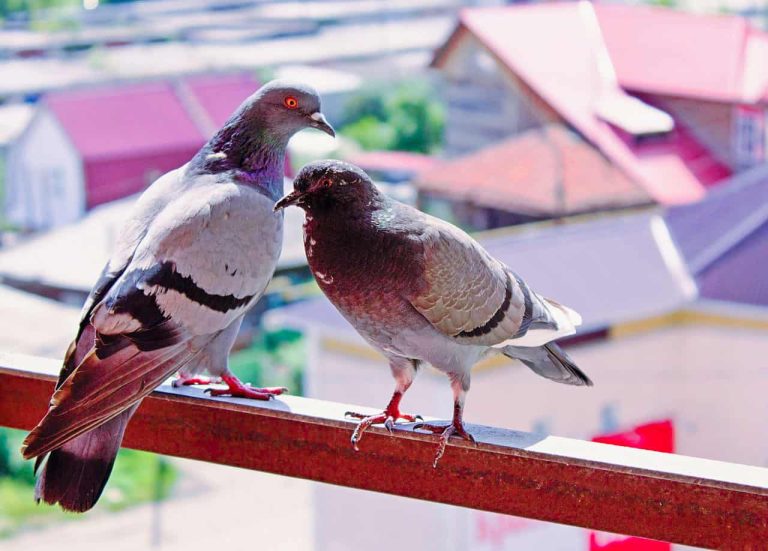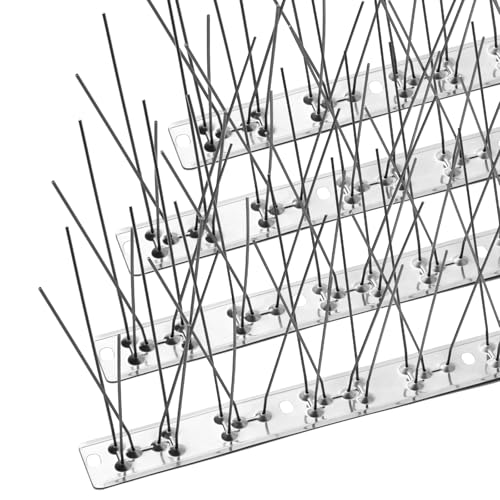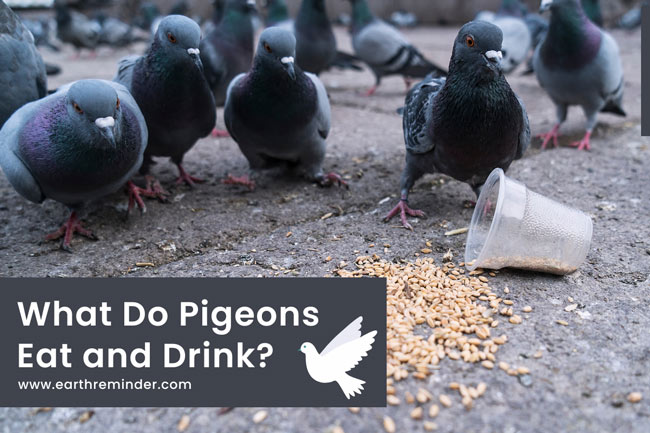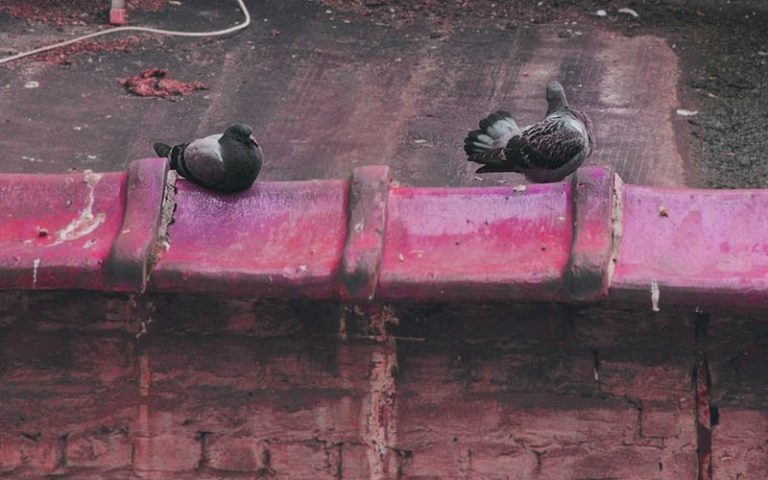How to Care for a Pigeon? Essential Tips for Healthy Birds!
To care for a pigeon, provide a clean environment, fresh water, and a balanced diet. Regular health check-ups and social interaction are essential.
Pigeons make fascinating pets that require specific care to thrive. Understanding their needs can enhance their health and happiness. These birds need a safe, spacious habitat to roam and exercise. A balanced diet, including seeds, grains, and occasional fresh fruits or vegetables, keeps them nourished.
Fresh water is crucial for hydration and digestion. Regular cleaning of their living space prevents illness and promotes well-being. Social interaction is vital, as pigeons are social creatures that enjoy company.
Introduction To Pigeon Care
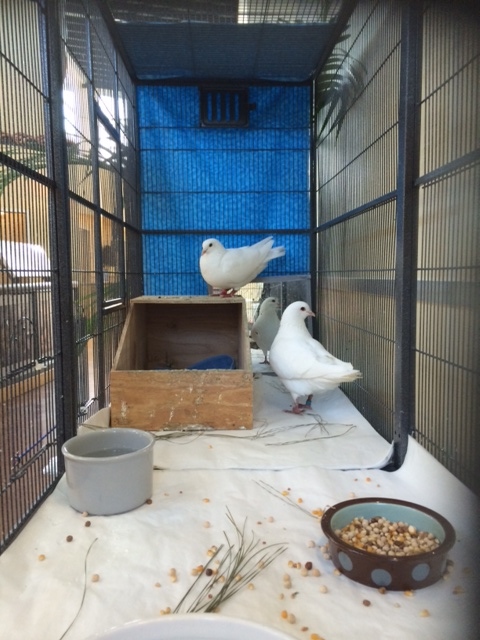
Credit: www.pigeonrescue.org
Caring for pigeons can be rewarding. These birds are friendly and intelligent. Understanding their needs is essential for their health. This guide will help you learn how to care for your pet pigeon.
Why Pigeons Make Great Pets?
Pigeons are unique pets for many reasons:
- Social Creatures: Pigeons enjoy the company and bond well.
- Low Maintenance: They require simple care routines.
- Intelligent: Pigeons can learn tricks easily.
- Calm Nature: They are usually peaceful and gentle.
- Long Lifespan: Pigeons can live up to 15 years.
Common Misconceptions
Many people have wrong ideas about pigeons. Here are some common misconceptions:
| Misconception | Truth |
|---|---|
| Pigeons are dirty birds. | Pigeons are clean with proper care. |
| Pigeons are dumb. | Pigeons are highly intelligent and trainable. |
| Pigeons need a lot of space. | Pigeons can thrive in small areas. |
| Pigeons are noisy pets. | Pigeons are relatively quiet compared to other birds. |
Understanding these facts helps in caring for pigeons. They are wonderful companions, deserving of love and attention.
Choosing The Right Environment
Creating a suitable environment for your pigeon is essential. Pigeons thrive in spaces that meet their needs. Consider whether to house them indoors or outdoors. Each option has its benefits. Let’s explore both choices.
Indoor Vs Outdoor Housing
Deciding between indoor or outdoor housing is crucial. Here are some key points:
| Feature | Indoor Housing | Outdoor Housing |
|---|---|---|
| Protection from Weather | High | Variable |
| Space Needed | Less space required | More space needed |
| Interaction with People | More frequent | Less frequent |
| Health Risks | Lower risk | Higher risk |
Indoor housing protects pigeons from harsh weather. It allows for closer interaction. Outdoor housing offers more natural space. Choose based on your living situation.
Creating A Safe Space
Safety is a top priority for your pigeon. Follow these steps to create a secure environment:
- Use sturdy cages: Ensure they are escape-proof.
- Keep the area clean: Remove waste and debris regularly.
- Provide proper ventilation: Fresh air is vital for health.
- Avoid toxic plants: Some plants can harm pigeons.
- Add hiding spots: Pigeons feel safe in cozy corners.
Monitor the space for hazards. Check for sharp objects or toxic items. Creating a safe space helps your pigeon feel comfortable and secure.
Feeding Your Pigeon
Feeding your pigeon properly is essential for its health. A balanced diet keeps your pigeon happy and active. Understanding their nutritional needs helps you choose the right food.
Nutritional Needs
Pigeons require a varied diet rich in essential nutrients. Key nutrients include:
- Carbohydrates: Provide energy.
- Proteins: Important for growth and repair.
- Fats: Source of energy and insulation.
- Vitamins: Support overall health.
- Minerals: Essential for bone health.
Ensure your pigeon receives all these nutrients daily.
Best Foods For Pigeons
Choosing the right foods is vital. Here are some of the best options:
| Food Type | Benefits |
|---|---|
| Seeds | High in energy and fats. |
| Grains | Rich in carbohydrates. |
| Vegetables | Provide vitamins and minerals. |
| Fruits | Offer hydration and natural sugars. |
Some popular seed mixes include:
- Millet
- Canary seed
- Sunflower seeds
- Peas
Foods To Avoid
Not all foods are safe for pigeons. Avoid the following:
- Processed foods: High in salt and sugar.
- Chocolate: Toxic to birds.
- Avocado: Can cause respiratory distress.
- Onions and garlic: Harmful to red blood cells.
Keeping these harmful foods away ensures your pigeon’s safety.

Credit: www.wikihow.com
Health And Wellness
Caring for a pigeon involves regular attention to its health. Keeping your pigeon healthy ensures a happy life. Here’s how to maintain their wellness.
Regular Check-ups
Regular veterinary check-ups are vital for your pigeon’s health. Schedule visits at least twice a year. Your vet can:
- Check for signs of illness.
- Update vaccinations.
- Assess dietary needs.
During check-ups, ask your vet about:
- Weight management.
- Feather condition.
- Beak and nail care.
Common Health Issues
Pigeons can face several health issues. Understanding these can help you act fast. Here are some common problems:
| Health Issue | Symptoms | Treatment |
|---|---|---|
| Respiratory Infections | Coughing, sneezing, nasal discharge | Antibiotics, warm environment |
| Worm Infestation | Weight loss, poor feathers | De-worming medication |
| Psittacosis | Diarrhea, lethargy | Antibiotics, isolation |
Emergency Care Tips
Sometimes, emergencies happen. Knowing what to do can save your pigeon. Here are quick tips:
- Stay calm and assess the situation.
- Check for injuries or bleeding.
- Keep the pigeon warm and quiet.
- Contact a vet immediately.
Remember, never self-medicate. Always seek professional help for your pigeon.
Hygiene And Grooming
Caring for a pigeon involves regular hygiene and grooming. These practices keep your bird healthy and happy. Clean birds are less prone to illness. Grooming helps maintain their feathers, nails, and beak.
Bathing Your Bird
Pigeons enjoy bathing. It helps remove dirt and keeps feathers in top condition. Here’s how to bathe your pigeon:
- Use a shallow dish or sink.
- Fill it with lukewarm water.
- Encourage your bird to splash around.
Let your pigeon bathe for about 15 minutes. After bathing, dry them with a soft towel. Avoid using a hair dryer; it may scare them.
Nail And Beak Trimming
Regular trimming keeps your pigeon’s nails and beak healthy. Overgrown nails can cause pain. A long beak can make eating difficult.
Follow these steps for nail trimming:
- Hold your pigeon gently.
- Use bird-safe nail clippers.
- Trim only the sharp tip.
For beak trimming:
- Use a file or grinder.
- File down any sharp edges.
- Ensure the beak is even.
Check nails and beak every month. Regular grooming promotes good health.
Training And Socialization
Training and socialization are vital for your pigeon’s well-being. These practices help build trust and bond between you and your bird. They also enhance your pigeon’s ability to interact with others.
Taming Your Pigeon
Taming your pigeon takes patience and consistency. Follow these steps to create a trusting relationship:
- Start Small: Spend time near your pigeon’s cage.
- Use Treats: Offer small pieces of food as rewards.
- Gentle Touch: Gradually introduce your hand into the cage.
- Short Sessions: Keep training sessions brief but frequent.
- Be Calm: Your demeanor affects your pigeon’s comfort level.
With patience, your pigeon will learn to trust you.
Teaching Tricks
Teaching your pigeon tricks is fun and engaging. Start with simple commands:
- Step-Up: Encourage your pigeon to step onto your finger.
- Turn Around: Use treats to guide them in a circle.
- Wave: Teach them to lift a wing like a wave.
Use positive reinforcement. Reward them immediately for completing a trick. This method reinforces good behavior.
Socializing With Other Birds
Introducing your pigeon to other birds helps with social skills. Follow these steps:
| Step | Description |
|---|---|
| 1 | Choose a safe environment for introductions. |
| 2 | Observe the birds from a distance. |
| 3 | Gradually decrease the distance over time. |
| 4 | Monitor their interactions closely. |
Socialization promotes healthy behavior. It reduces stress and encourages play.
Breeding Considerations
Breeding pigeons requires careful thought. Several factors influence successful breeding. Understanding these factors can help you provide the best care.
When To Breed
Pigeons breed year-round, but some times are better than others. Spring and early summer are ideal for breeding. In these months, conditions are warm. Food is abundant, making it easier for parents to feed their young.
Consider the following when deciding when to breed:
- Temperature: Avoid extreme heat or cold.
- Food supply: Ensure there is plenty of food.
- Health: Make sure the pigeons are healthy and strong.
Creating The Right Environment For Breeding
A suitable environment is crucial for breeding pigeons. Follow these tips to create a comfortable space:
- Provide a clean and spacious loft.
- Include nesting boxes for each pair.
- Maintain a quiet area away from disturbances.
- Ensure good ventilation and lighting.
Here is a simple table summarizing important environmental factors:
| Factor | Importance |
|---|---|
| Space | Prevents stress and aggression among pigeons. |
| Nesting Boxes | Provides a safe place for laying eggs. |
| Cleanliness | Reduces disease and promotes health. |
| Ventilation | Ensures fresh air and prevents overheating. |
Establishing a proper breeding environment leads to healthier pigeons and successful breeding.
Credit: www.earthreminder.com
Legal And Ethical Considerations
Caring for pigeons involves important legal and ethical duties. Understand the laws in your area. Follow ethical practices to ensure the well-being of these birds.
Understanding Local Laws
Different regions have unique laws about keeping pigeons. Research your local regulations. Here are some key points to consider:
- Check if a permit is required.
- Know the types of pigeons allowed.
- Understand zoning laws affecting bird keeping.
- Be aware of restrictions on feeding wild pigeons.
Failure to follow these laws can lead to fines. Respecting local laws helps protect wildlife and your community.
Wildlife Conservation Efforts
Pigeons play a role in our ecosystem. Ethical care supports wildlife conservation. Here are ways to contribute:
- Participate in local bird-watching groups.
- Support organizations focused on bird rescue.
- Educate others about pigeon care.
- Report injured or sick pigeons to wildlife authorities.
Every small action helps maintain a balanced ecosystem. Caring for pigeons responsibly promotes their survival.
Frequently Asked Questions
How Often Should I Feed My Pigeon?
Feed your pigeon daily, offering a mix of seeds, grains, and fresh vegetables for a balanced diet.
What Is The Best Housing For Pigeons?
Provide a spacious, well-ventilated coop with perches, nesting boxes, and protection from predators.
How Do I Clean My Pigeon’s Living Space?
Regularly remove droppings and old bedding. Use mild disinfectants to keep the area hygienic and safe.
What Health Issues Do Pigeons Commonly Face?
Pigeons may suffer from respiratory infections, parasites, or nutritional deficiencies. Regular vet check-ups are essential.
Final Tips: How to take care of pigeons?
To care for pigeons, provide fresh water daily and a clean, spacious cage. Offer a balanced diet with pigeon mix grains, fresh vegetables, and occasional seeds.
Make sure they have a safe, sheltered place to rest, away from predators and harsh weather. Keep their living area clean to prevent illness. Allow them time outside the cage to exercise and fly. Trim their nails regularly and ensure they get sunlight for their health.
Check for any signs of sickness, such as unusual behavior or loss of appetite, and consult a vet if needed.
Happy birdkeeping!


